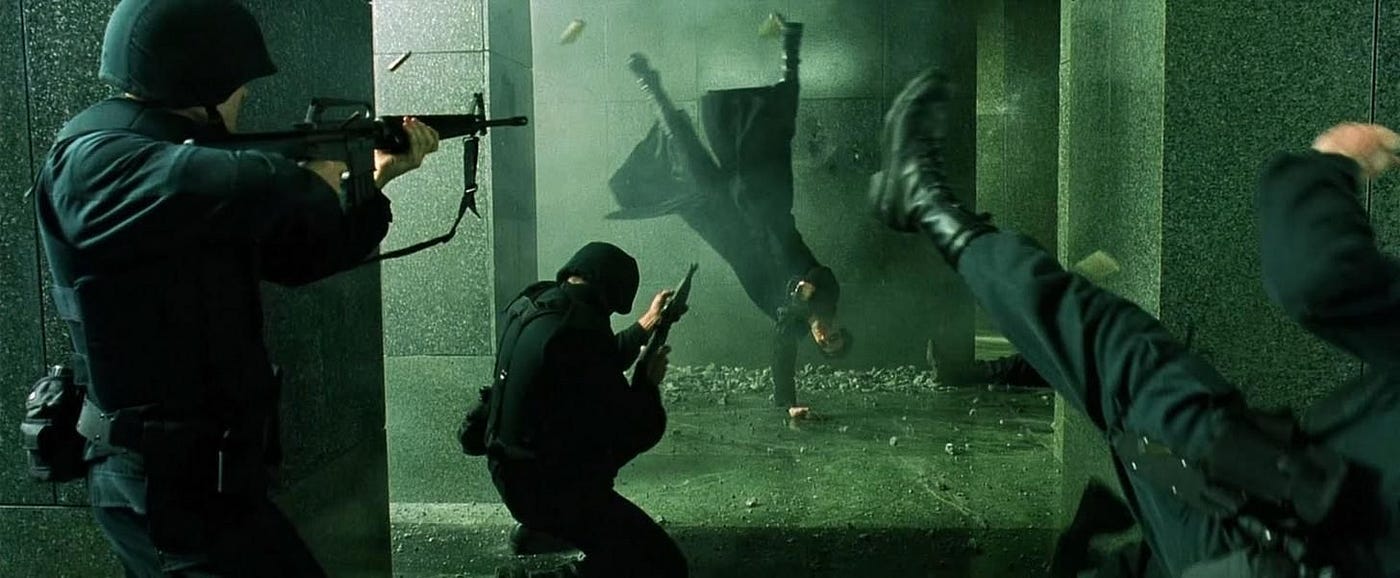Burning Out the Screenplay
Tips on How to Make a Great Movie Without a Screenplay
I once had a great opportunity fall on my lap. A fairly accomplished director moved back home from L.A., which conveniently was in my hometown. Somehow we rubbed shoulders and the next thing I knew, I was helping him shoot this short comedy pilot for a YouTube show. It was very exciting, but I immediately grew confused when he sent the script because all I got was a half-page Google doc describing the basic gist of what would happen.
My mind couldn’t connect the dots. This was someone who directed top talent in Hollywood with a successful film under his belt that actually made money…Sooo why was he sending this scribble instead of a formal script? How could anyone possibly make a movie with just a few notes? Well…It actually is possible because we pulled it off. Granted, the show didn’t go anywhere, but we managed to capture everything, using proper blocking and great improvisation from the actors.
I would later find out that this scribbled Google doc was intentional because it wasn’t a screenplay. It was a scriptment. this is just a cute term describing a bare-bones document that lays out the rough brush strokes of what will happen and is typically employed for shorts when filmmakers want to challenge their creative spontaneity. So the idea is to create a broad sandbox for your actors and crew to play in as opposed to crafting a meticulously designed set with a well-defined shot sheet, blocking, and dialogue already laid out in pre-production.
Needless to say, it was messy, challenging, and a whole lot of fun, but we did it! How, you might ask? Well, we filled the set with highly creative people who could think and solve problems on the spot, which says a lot about this question surrounding the importance of screenplays. How crucial are they really? Now, look. I live for screenwriting. It’s my favorite thing in the World to do, so I’ll never stop writing or using them when making films, and I still highly recommend using them because the alternative will make your life significantly harder. But…Can you technically get away with shooting a great story without a well-written script?
The short answer is, yes, under the right conditions. First, your team MUST be talented. No, this doesn’t mean they have to be the best of the best, though that significantly helps. But they do have to have a clear understanding of what they’re doing so that adaptations can be made quickly. Without a screenplay, you’re making things up as you go. So it’s extremely unlikely that a group of amateurs can do this because they’ll run out of time given that it will take them longer to find solutions and achieve them. With a skilled team, they can better manage the time it takes to adapt and improvise. And with the best of the best, they can actually create gold!
For instance, The Fugitive, which premiered in 1993, stayed as the number one film in the U.S. for six consecutive weeks and grossed $370 million worldwide against a 44 million-dollar budget. It was a huge success. But did you know that 70% of it was improvised?
No, this wasn’t done on purpose. The production was dealing with a series of challenges that included rewrite after rewrite, and there were many moments when they just didn’t have a fully written scene. So they had to make it up as they went. The entire scene where Tommy Lee Jones gives his big speech to butter up the search team was done off the cuff with just the basic information about the characters and story. It was incredible and really exposed the true talent of these actors.
My Son is another great example of a well-made movie that didn’t lean on the screenplay. In fact, this movie claimed to have been done without a screenplay at all, which is crazy to think because it flowed so seamlessly. The actors didn’t even have access to the story and were only told basic information about what was going on.
So everything that was said and done in that movie was in the moment with little to no planning. Again, this says a tremendous amount about the talent who pulled it off.
And, of course, we see improvisation peppered in all of our favorite movies because it’s very common for actors to do something in the moment that ends up working very well like the scene with Heath Ledger’s Joker when he blows up the hospital or when Jim Carey walks by those guys at the gas station in Dumb and Dumber, making the “Big Gulp” comment.
So there’s absolutely something to be said about leaning more into the talent than the script. But, again, that only works if your talent works. Additionally, you also need to factor in the complexity of your story, which leads me to the next condition…
Your story should be simple! Here’s the thing. All of the examples I outlined were either small moments within an organized shoot or the stories themselves were simple enough for these highly talented people to execute effectively. The more complicated your story is, the harder it will be to make it without a screenplay. Imagine improvising the entire West World Series or The Matrix. I suppose anything is possible, but wow that would be a tall order!
With simpler stories like romcoms or basic thrillers, you can lean much more on the existing tropes that were used in other movies to create your “sandbox” for working in. With complicated movies like Fight Club, it’s much harder to reference other movies that expressed similar patterns, so you’ll really be improvising more in the dark. Furthermore, you’ll have so many more intricacies in the plot that will need to be expressed to your team, which brings me to the next condition that should be factored in.
Have your basic brush strokes in place. Say you decide to improvise a scene without a screenplay. In this scenario, it is far, far, FAR, easier to direct people with the basic gist of what’s going on, where it starts, and where it ends than it is to intimately detail every aspect of a complicated scene with a bunch of twists, turns, motifs, and subtle moving parts that require crazy levels of blocking.
So for instance, let’s say you have a “Boy Meets Girl” scene for a romance movie. This could be hard to do without a script, or it could be quite doable. As long as you define and express:
Who each character is
What each character wants at this moment
What happened in the prior scenes
What each character knows and doesn’t know
What each character philosophically believes about the World and how one should live
Where the characters are in relation to one another and where they are going
If you can establish this for your team, then the actors and crew will be able to fill in the gaps and capture what you need.
That’s exactly why the simpler the story is, the easier it will be to pull it off without a screenplay since all of these questions would have basic answers that most could probably figure out on their own. If the story is more complicated, these answers become more complicated and less obvious, which will require more time to iron out with the crew. So if you’re trying to improvise intentionally, do it with a simple story that has all the rough brush strokes in place. If you’re not trying to improvise but find yourself needing to, then just focus on the questions above and lean on your team to get it done. If you strengthen the improvised sandbox with these questions then the rest will be taken care of.
Lastly, if you want to create a movie without a screenplay, make sure you have the time and money to do it. If you’re short on these things, maybe try your hardest to avoid improvising and come in with a solid plan. It’s a great way to exercise creativity, but when you’re talking about 10 or 20k from your own pocket and only a few days to shoot it…Well, that’s a very expensive and stressful exercise. So my advice would be to do this with no-budget films that can be shot in a day and have little to no risks involved.
If you do have the time and money, then this is far less of an issue, but even then, you probably still want to stick with a script and a solid plan. This way you can improvise when and where you are able to, which will allow you to take full advantage of creative spontaneity while staying on schedule and on budget. At the end of the day, it’s how prepared you are that ultimately determines whether a movie gets made, regardless of the quality of the story. And a well-polished script will only make you more prepared.
So can you make a great film without a great script? Definitely! As long as you have talent, a simple enough story with all the necessary brush strokes in place, and preferably enough time and money to pull it off. And, of course, you want to make sure you have a great story to tell. But regardless of whether you use a screenplay or not, just know that it’s never a good idea to fully stifle improvisation nor is it a good idea to fully lean on improvisation over planning. Both contrasting approaches can aid or destroy a film. So it’s better to learn how to do both. This way you can switch between the two methods and gain the benefits of both. That’s how the pros do it, at least.
Thanks for checking this out, and as always, best of luck in your creative endeavors!
Story Prism
___________________________________









